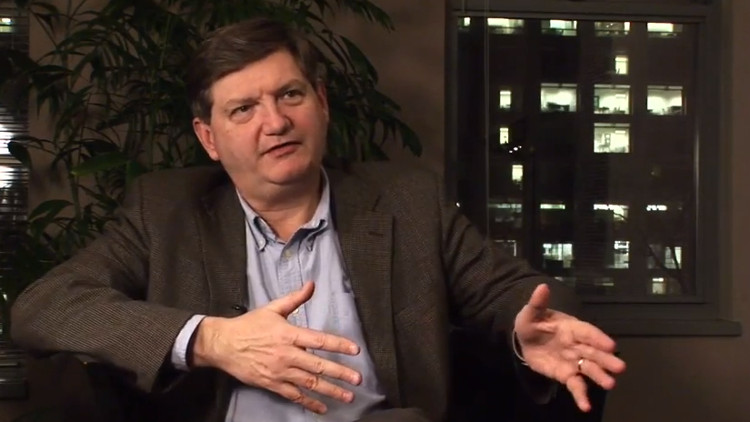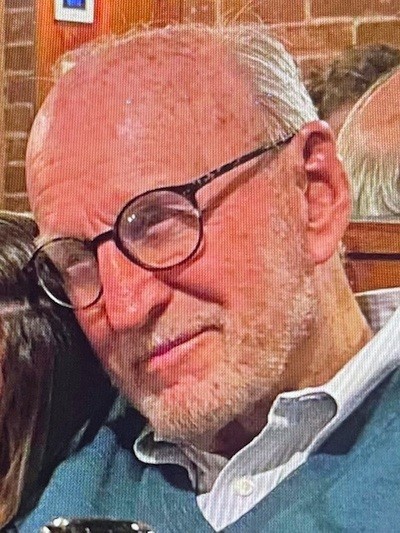The chaos that has erupted in the streets of Ferguson, Mo. following the fatal shooting of 18-year-old Michael Brown by a local police officer on Aug. 9 has ignited long-simmering racial tensions in the St. Louis suburb and has also brought to the mainstream another question that has been boiling in recent years: How free is the press in America?
At least a dozen journalists have either been arrested or detained without charge for reporting on the deteriorating conditions in Ferguson. The first two reporters handcuffed by police there were the Washington Post’s Wesley Lowery and the Huffington Post’s Ryan J. Reily, who both tweeted about the experience. Lowery wrote a firsthand account a day after his arrest. Both were inside a McDonald’s when they raised the suspicion of police. They were released after a Los Angeles Times reporter called the Ferguson police chief and notified him of their arrest.
SWAT just invade McDonald’s where I’m working/recharging. Asked for ID when I took photo. pic.twitter.com/FOIsMnBwHy
— Ryan J. Reilly (@ryanjreilly) August 13, 2014
Police come into McD where me and @ryanjreilly working. Try to kick everyone out.
— Wesley Lowery (@WesleyLowery) August 13, 2014
Was arrested
— Wesley Lowery (@WesleyLowery) August 14, 2014
Officers decided we weren’t leaving McDonalds quickly enough, shouldn’t have been taping them.
— Wesley Lowery (@WesleyLowery) August 14, 2014
Well, @WesleyLowery and I have been released. That was an experience.
— Ryan J. Reilly (@ryanjreilly) August 14, 2014
Released without any charges, no paperwork whatsoever
— Wesley Lowery (@WesleyLowery) August 14, 2014
Video of my arrest: http://t.co/baiYPQGfc7/s/ZHkX
— Wesley Lowery (@WesleyLowery) August 14, 2014
Committee to Protect Journalists, a press freedom organization, has condemned what it called the harassment of journalists in Ferguson.
“Ferguson is an international story and journalists are going to cover it. They have a right to do so without fearing for their safety or liberty,” CPJ Deputy Director Robert Mahoney said in a statement. “The harassment and detention of reporters must stop. From senior commanders on down, the word must go out to security forces to let journalists do their job.”
The arrests of Reily and Lowery was widely reported the next morning, and prompted public outrage, as well as this response from President Obama during an unscheduled statement to reporters in which he addressed the unrest in Ferguson:
“There is never an excuse for violence against police, or for those who would use this tragedy as a cover for vandalism or looting. There’s also no excuse for police to use excessive force against peaceful protests, or to throw protestors in jail for lawfully exercising their First Amendment rights. And here, in the United States of America, police should not be bullying or arresting journalists who are just trying to do their jobs and report to the American people on what they see on the ground. Put simply, we all need to hold ourselves to a high standard, particularly those of us in positions of authority.”
Here was the president standing up for press freedoms. But, not everyone was heartened by those comments, especially supporters of Pulitzer Prize-winning New York Times reporter James Risen, whose freedom currently hangs in the balance.
Obama defends reporters in Ferguson, but demands compliance from James Risen http://t.co/kf8SEi7D4k via @CJR
— Freedom of the Press (@FreedomofPress) August 14, 2014
The Department of Justice can call Risen to testify and ask him to reveal his source, even though the government has already indicted former CIA agent Jeffrey Sterling for disclosing classified information about Iran’s nuclear weapons operation to Risen. If that happens and the reporter refuses to reveal his source, he could potentially be jailed on charges of contempt of court. But, U.S. Attorney General Eric Holder has said, “As long as I’m attorney general, no reporter will go to jail for doing his job.”
The classified information in question was originally going to be reported in the Times, but the government asked the paper not to publish it. Risen then decided to publish the material in his book.
From court documents:
“Although The New York Times had agreed not to publish information about Classified Program No. 1, Risen published a book, State of War: The Secret History of the CIA and the Bush Administration (“State of War”), in January 2006, which did disclose the classified information. J.A. 721. Specifically, Chapter 9 of the book, entitled “A Rogue Operation,” reveals details about Classified Program No. 1. J.S.A. 219-32. In the book, Risen entitled the program “Operation Merlin” and described it as a “failed attempt by the CIA to have a former Russian scientist provide flawed nuclear weapon blueprints to Iran.” J.A. 722. Risen does not reveal his sources for the classified information in Chapter 9, nor has he indicated whether he had more than one source. However, much of the chapter is told from the point of view of a CIA case officer responsible for handling Human Asset No. 1. The chapter also describes two classified meetings at which Sterling was the only common attendee.”
Risen exhausted all his legal avenues after the Supreme Court declined to hear his appeal. Despite his precarious situation, Risen has vowed to never reveal his source.
In a recent interview with his colleague Maureen Dowd, Risen called Obama “the greatest enemy to press freedom in a generation.” He had the same choice remarks for Obama during a panel discussion as part of the George Polk Awards conference back in March.
NYT reporter James Risen calls Obama “the greatest threat to press freedom in a generation.” http://t.co/vLYZ8v3fSS pic.twitter.com/uTbGZO5uEn
— Freedom of the Press (@FreedomofPress) August 17, 2014
Last week, press freedom groups handed the DOJ a petition signed by 100,000 Risen supporters, urging Obama and U.S. Attorney General Eric Holder to “halt all legal action” against the journalist.
Yesterday, 100k+ signatures were delivered to @TheJusticeDept in support of #JamesRisen | Press conference video: http://t.co/xgjayEPmWD
— CPJ (@pressfreedom) August 15, 2014
Risen isn’t the only journalist caught in the Obama administration’s crosshairs.
There’s also the case of the government seizing Associated Press phone records amid a leak probe and the labeling of Fox News reporter James Rosen as a co-conspirator along with U.S. State Department Adviser Stephen Kim, who was indicted for allegedly revealing information about a North Korean nuclear test.
Obama also oversees an administration that has charged more people—eight—under the Espionage Act of 1917 than all administrations combined.
And then there is Barrett Brown, a Texas-based journalist, who has been jailed for 23 months, and who up until early March faced more than 100 years in prison for allegedly trafficking stolen authentication features, access device fraud and identity theft—all related to his sharing a link of publicly available information, albeit hacked information. Brown later pleaded guilty to several charges and now faces 8 ½ years in prison.
But his prosecution—and the Obama administration’s so-called “war on whistleblowers”—caused the international press freedom group Reporters Without Borders to drop the United States’ ranking in its yearly “press freedom index” last year, from 32 to 46.
For national security reporters like Risen—who along with the Times’ Eric Lichtblau in 2005 broke the story about illegal wiretapping of U.S. citizens without warrants—anonymous sources are key to shedding light on government activities.
“It’s obviously had an effect, but I’m trying to keep working,” Risen said of the government putting legal pressure on him to reveal his source.
Before petitioning the Supreme Court, the U.S. Court of Appeals for the Fourth District also declined to hear his appeal.
Judge Roger L. Gregory, who wrote the dissenting opinion for the court, criticized his colleagues and said: “Democracy without information about the activities of the government is hardly a democracy.”
He continued:
“The public, of course, does not have a right to see all classified information held by our government. But public debate on American military and intelligence methods is a critical element of public oversight of our government. Protecting the reporter’s privilege ensures the informed public discussion of important moral, legal, and strategic issues. Public debate helps our government act in accordance with our Constitution and our values. Given the unprecedented volume of information available in the digital age—including information considered classified—it is important for journalists to have the ability to elicit and convey to the public an informed narrative filled with detail and context. Such reporting is critical to the way our citizens obtain information about what is being done in their name by the government.”
That’s all Risen and the reporters in Ferguson are trying to do.



























